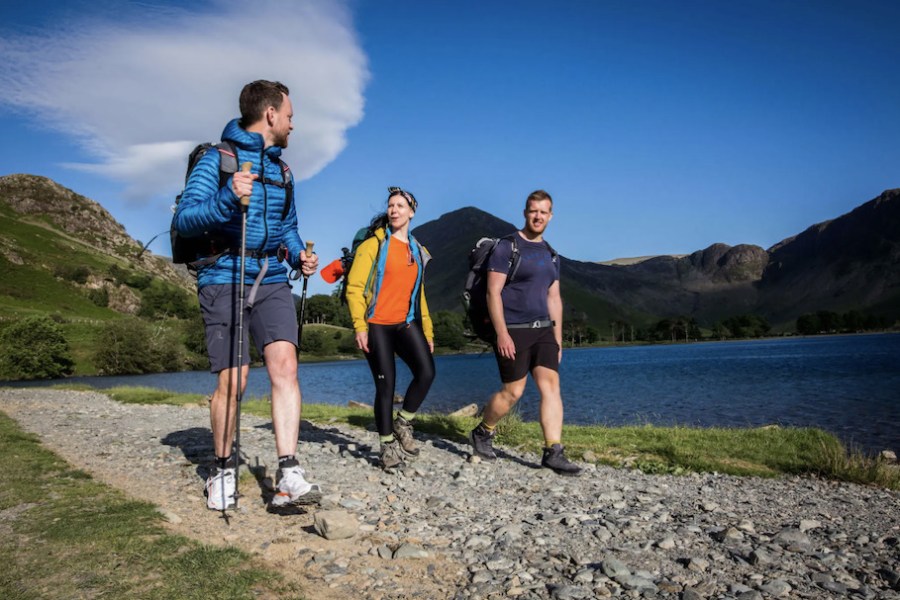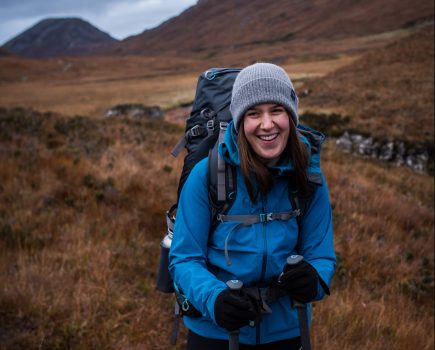The pandemic has changed how we relate to the outdoors – but not always in a good way. We spoke to hikers about their struggles to reconnect with adventure.
Main image: Hiking with others can be a great way of getting back outdoors. Photo: Jessie Leong
The pandemic is often credited with inspiring more people to enjoy the outdoors. According to a Natural England survey, 46% report spending more time outside since the first lockdown than they did before it. Plas y Brenin’s 2021 survey revealed that nearly a third tried a new activity in the first year of the pandemic. But for some hillwalkers, two years of ‘stay at home’ messaging, travel restrictions, health worries and uncertainty have had the opposite effect.
“I think there are some people who have struggled to connect with the outdoors over the pandemic, maybe because of fears over COVID-19 or the overall levels of uncertainty,” says Andrew Higson, director of mental health charity Blackdog Outdoors.
His charity has seen a huge uplift in the number of people looking to join its group walking and climbing events, many of whom are seeking a way to reboot their connection with the outdoors following a pandemic hiatus. “There’s been a lot of good publicity recently about the positive effects of walking, but nobody is telling people how to do it,” adds Andrew. “If you’ve not done anything big for a while and you have anxieties about it, then the idea of planning, say, a trip to Wales to climb a hill can be really intimidating.”
Lost confidence
Some hillwalkers blame their flagging enthusiasm for getting outdoors on a crisis of confidence. Based in the south of England, Sarah Engineer is used to commuting regularly for her hillwalking thrills. Since the first lockdown in 2020, though, she’s found herself losing faith in her fitness levels and hill skills.
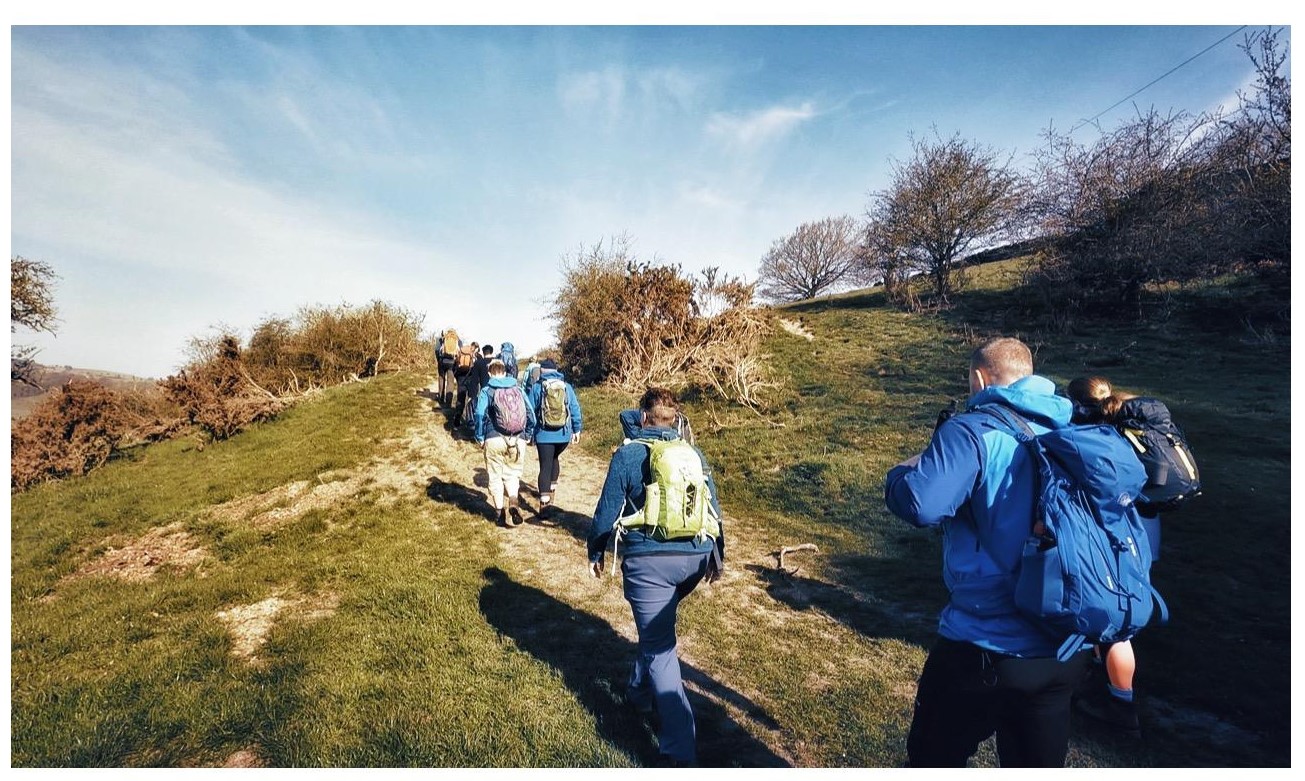
A walk led by Blackdog Outdoors. Photo: Blackdog Outdoors
“There was a lot of uncertainty over travel during that first summer, and I ended up deciding that it was easier just to stay local,” she says. “I booked a trip to Scotland for the autumn, which ended up being cancelled because of the second lockdown. Suddenly it was a year since I’d been hillwalking and I started to wonder whether my fitness and my navigation was up to scratch. Last year I did manage a short adventure in the Lake District, but I definitely found it harder going than usual and I still haven’t really regained my confidence.”
Transition
The pandemic has been particularly challenging for those who depend on a connection with the outdoors for their mental health. Mark Ellison continued walking during the first lockdown by exploring his local area – five miles every night for a month. When lockdown lifted he returned to the outdoors, but it wasn’t an easy transition.
“With all the restrictions in place it just didn’t feel right anymore – I was worried about what other people were going to think of me,” he says. “I managed to get back out enjoying it, because that was what I needed to do to stop me going back to a bad place… but when it looked like more restrictions might be brought in [at the end of 2021] I found that really hard. I don’t really like change and I’d got comfortable again with being able to walk around freely.
“Over the last month I’ve struggled to get out. I’m not going to beat myself up about it, though, because I’ve been fighting every day to stay in a good place for a few years and I think I need a break!”
Uncertainty
Sarah Perkins is another hillwalker who has struggled with the uncertainty surrounding coronavirus restrictions. “It has led to a lot of cancelled and rearranged plans,” she says. “I’ve had to cancel trips to Scotland when borders have been closed. Myself and others from our charity walking group were due to go to Everest Base Camp last year, but due to the pandemic we have had to postpone to this year.
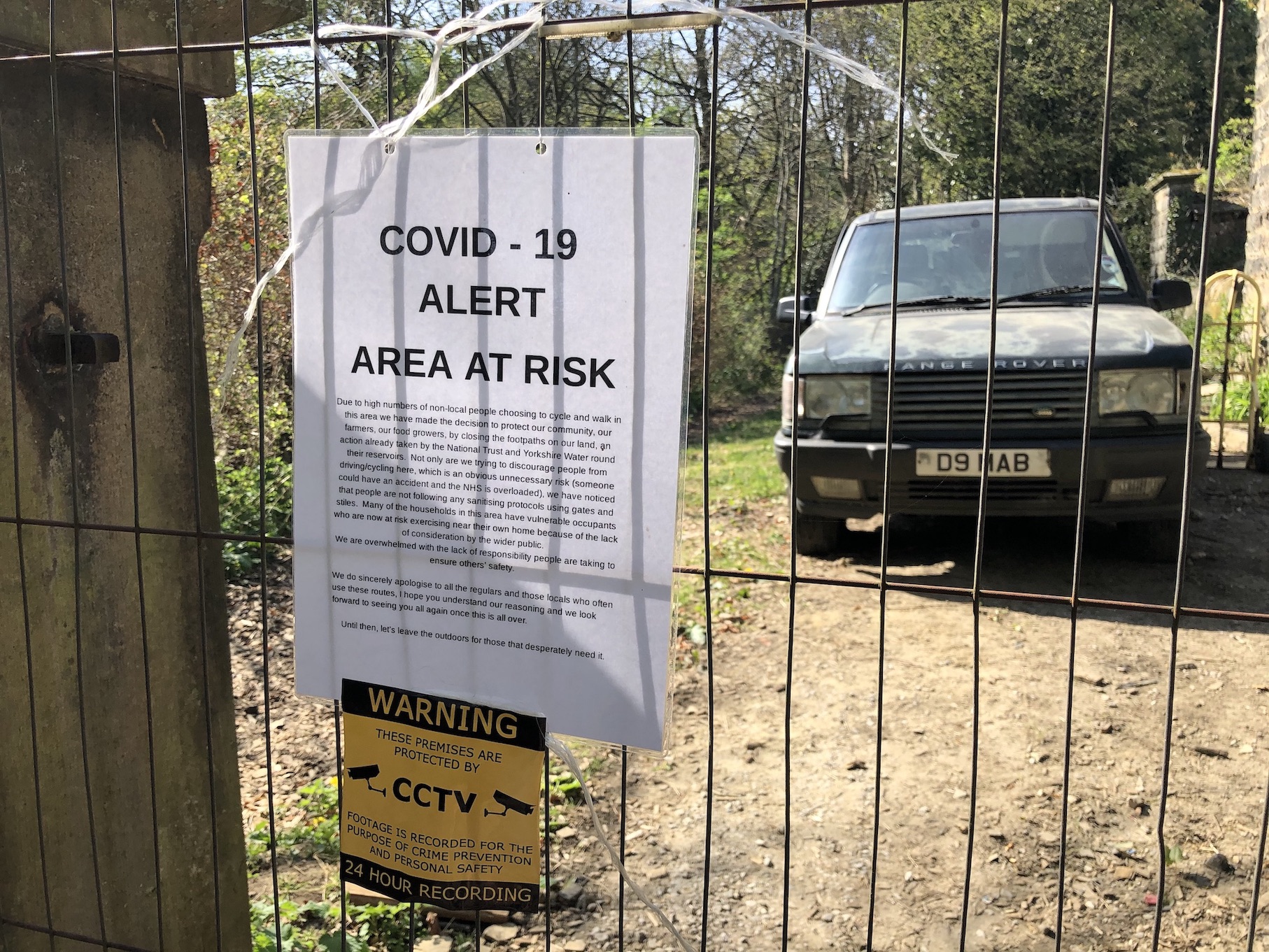
A path illegally blocked by a landowner during the first lockdown. Photo: Carey Davies
“It has made it very hard for me to get excited for adventures or look forward to them because you are constantly wondering if they are going to be able to happen.”
Overcoming the mental barriers raised by uncertainty and flagging confidence isn’t always easy – but it can be done. Here are Andrew’s top tips for regaining your hiking and hillwalking mojo…
1. Start small. Don’t go from nothing to Ben Nevis in a week – if you haven’t been out for a while and you want to get your confidence up then start with something local. Look at a map, try to find something interesting in a place you’ve never been before, and plan a route to take.
2. Find a reason to get out. Whether it’s geology, geography or wildlife, think about your interests and use them to motivate yourself. There are plenty of fantastic resources out there to help you, such as the PlantNet app and the Field Studies Council.
3. Go with a friend. Find someone you trust who isn’t going to judge your fitness or skill levels and plan a trip together. If you haven’t got any hiking or hillwalking mates, consider using a local leader – Mountain Training has an excellent database.
4. Find a local support group. Well-recognised organisations, such as Blackdog Outdoors or the Ramblers, are often the best place to start – Meetup-style events can be a bit of a mixed bag.
5. Work on your fitness. Again, start small and build up slowly. Make sure you’re walking with a pack to build your strength, and gradually increase pack weight, distance and ascent as your confidence grows.
6. Brush up on your navigation. A big barrier for many people is the fear of getting lost in the hills. Consider attending a National Navigation Award Scheme (https://nnas.org.uk) course to boost your skills.
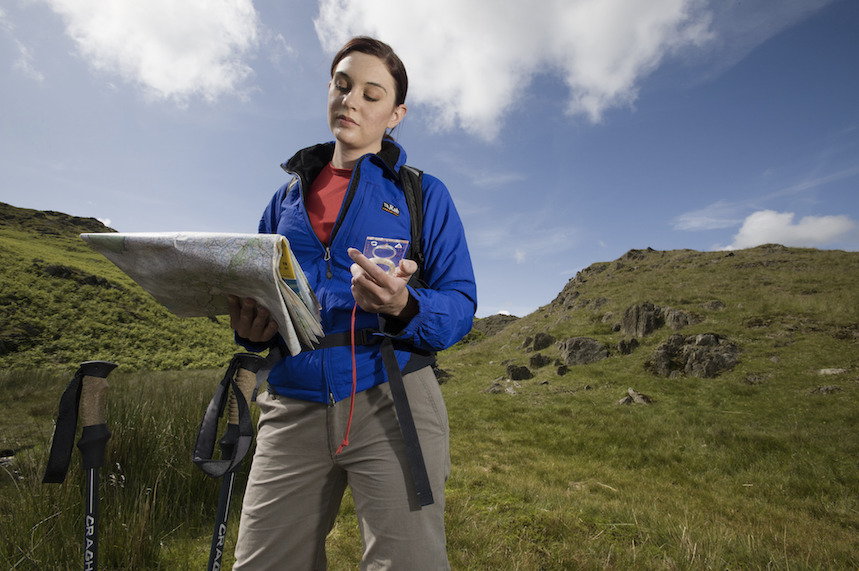
Brushing up on your navigation skills can help rebuild confidence. Photo: Tony West
7. Try a new activity. When restrictions stopped her travelling further afield, Sarah Perkins learned to paddleboard. “It’s something that I can enjoy locally,” she says. “The outdoors is a huge part of me and if restrictions are in place then I need to find new ways to be able to connect with it.”
8. Set yourself a challenge. The challenge mindset can help you overcome your fears. It could be anything – the Great Glencoe Challenge, an alternative take on the Three Peaks, even simply walking up Snowdon. Go as big or as small as you feel comfortable with.
9. Get your gear in shape. Don’t let inadequate gear be an excuse for not getting out there. Buy the best gear you can afford, and test it before heading off on a trip to make sure everything’s comfortable and waterproof.
10. Don’t be scared to take a rain check. If the weather changes or the conditions aren’t right, there’s no shame in cancelling. Cultivate acceptance – if it isn’t right this time then don’t worry about it, do it another week.
Blackdog Outdoors runs regular meetups for people looking to reconnect with the outdoors around the country. If you’re struggling with your mental health, great resources include Mind, Problem Shared, the Samaritans and Zero Suicide Alliance.

